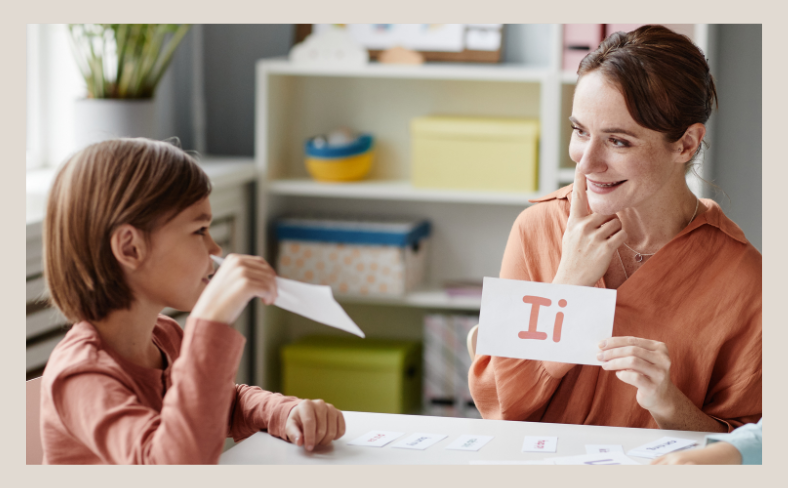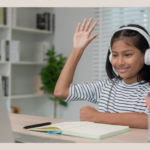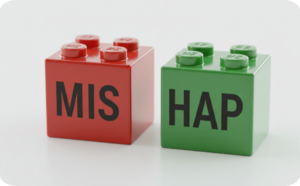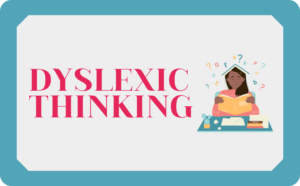No products in the cart.

Reading therapy is simply a research-based approach to literacy instruction. It is also commonly referred to as:
- Structured Literacy Instruction
- Orton-Gillingham Tutoring
- Wilson or Barton Tutoring
- Dyslexia Remediation
- Multisensory Reading Intervention
It is considered the most effective way to teach reading and is found to be beneficial for all readers but essential for those with language-based disabilities like dyslexia.
Why is it effective for Dyslexia?
Before we dive into the science behind reading therapy, let’s first understand what dyslexia is. Dyslexia is a specific learning disability that is characterized by challenges with accurate and/or fluent word recognition and by poor spelling and decoding abilities. These hurdles often stem from an underlying deficiency in the phonological aspect of language. Secondary effects may encompass difficulties in reading comprehension and limited exposure to reading, hindering the expansion of vocabulary and background knowledge.
The Science of Reading is the comprehensive body of research that informs us about what parts of the brain are responsible for reading development and how we learn to read. It emphasizes systematic and explicit instruction in phonics, phonological awareness, fluency, vocabulary, and comprehension to support effective reading development in learners. Several curriculums/approaches closely follow this Science of Reading. Orton-Gillingham is often considered the “Gold Standard” due to its strong emphasis on multi-sensory instruction and its ability to tailor the intervention to individual student needs.
Evidence-Based Practices
It’s essential to seek professionals who employ evidence-based instructional methods and interventions supported by this research. These may include Orton-Gillingham, Wilson Reading System, SIPPS, and other research-backed approaches. A therapist with extensive structured literacy training and experience is likely to achieve success using any research-backed curriculum, and most therapists will incorporate elements from various programs as needed for your child.
Learn more about our team of qualified reading therapists.
Finding a Qualified Reading Therapist
If your child is below grade level in literacy skills, it is important to seek out a qualified reading therapist with specialized training in literacy acquisition and effective instructional methods. If your child has been diagnosed or suspected of dyslexia, the specialist needs considerable training in multisensory methods of teaching structured literacy. This training typically involves hundreds of hours of coursework on multisensory methodologies for teaching reading and writing, extensive lessons about English language structure, and long-term supervised experience. The level of competence in this field can vary significantly.
Red Flags
- Be cautious of tutors who use terms such as “guided reading,” “leveled readers,” “reading and writing workshop,” “reading recovery,” or “balanced literacy.” These programs, materials, and ideas have been known to hinder the progress of struggling readers and are often not rooted in the science of how humans learn to read and write. They are also approaches likely to be used at your child’s school and are frequently the reason parents seek outside help in the first place.
- Many well-known nationwide reading centers boast “literacy experts”, but a quick look at their job listings reveals that candidates for these roles are often college students who attend a short curriculum training and receive little more than minimum wage. An immeasurable difference exists between a tutor who attended a week-long training and a dyslexia therapist who spent years training and gaining experience.
- Beware of programs and learning centers that train staff on a single program and expect educators to “stick to the script.” Because every struggling reader is unique, look for reading therapists who provide individualized instruction tailored to your child’s needs. Therapists should be flexible in their approach, adjusting strategies and techniques based on your child’s progress and real-time feedback.
Find a Qualified Reading Therapist
You can schedule a free initial consultation to learn more about reading therapy and about our team of qualified reading therapists. We will listen to your concerns, answer any questions, and learn about the student’s needs. Contact Us.
Additional Resources
Not ready to schedule an initial consultation? No problem, you can browse through our free library of resources created by a team of highly qualified reading therapists.







No comment yet, add your voice below!